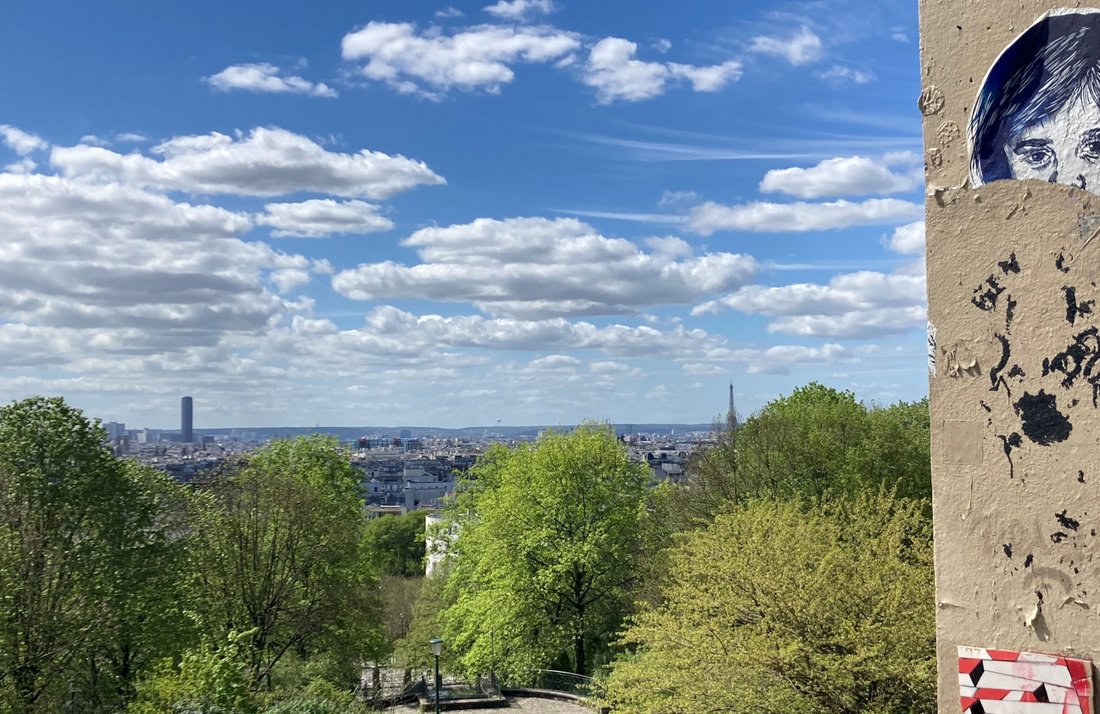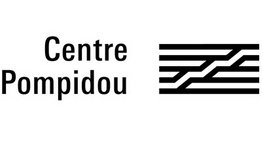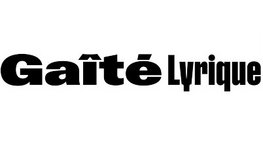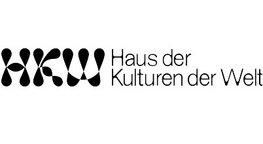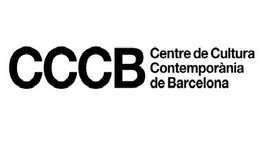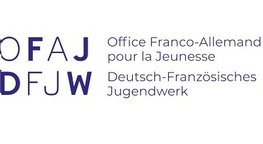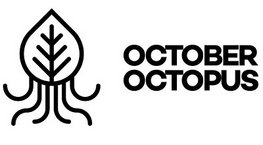Cultures d'avenir 2024
Presentation
Centre Pompidou and Gaîté Lyrique in Paris, Haus der Kulturen der Welt (HKW) in Berlin and Centre de Cultura Contemporània de Barcelona (CCCB) are launching the third edition of Cultures d’avenir. The program is made possible with the support of the Franco-German Youth Office (FGYO).
With a series of 3 workshops of 3 days each (in Berlin, Paris and Barcelona), the program invites young film-makers and audio-visual artists to rethink how artistic practices address societal issues and how art and culture can play a role in approaching global contemporary challenges. During the course of this program, the four international art institutions are collaborating with a commitment to critical thought and experimental inquiry while providing their structural support and knowledge.
"Retelling the city"
This year's edition will focus on the topic of cities, which from being the main scenario of freedom and modernity, have somehow become, in our imaginary, the hostile setup for contemporary life. Have cities become the worst of what globalization has to offer? Has the city as a paradigm become obsolete? Throughout history, the city has served as a place for survival and coexistence in the company of other people we don’t know, in a cosmopolitan spirit. It has been a space for freedom and autonomy, for establishing institutions and collective identities. Is it still the case today?
Program
In 2024, the program will concentrate on the medium/language of cinema: fiction or non-fiction films (movies, documentaries, experimental films, animation…) By the end of the program, participants will be expected to have produced a 5-minute piece to be screened.
The project will also be an opportunity for fifteen participants to form an international network of young film-makers and audio-visual artists. Over the course of the three workshops, they will have the opportunity to share their projects with other artists and reflect upon their own work. This collective process of critical thinking and learning will be accompanied by the support of a group of experts from different disciplines who will help them reflect on how their artistic approaches can be put into perspective in a meaningful way.
What does the program offer?
- Three on-site workshops:
- Berlin (July 1-5, 2024)
- Paris (September 11-15, 2024)
- Barcelona (November 19-23, 2024)
- Travel expenses abroad (trips, accommodation, lunches and 1 dinner per session) will be covered by the organization
- A 2,000€ production grant for each participant
Reviewing process:
A team of representatives from Centre Pompidou, Gaîté Lyrique, HKW and CCCB will evaluate all the applications.
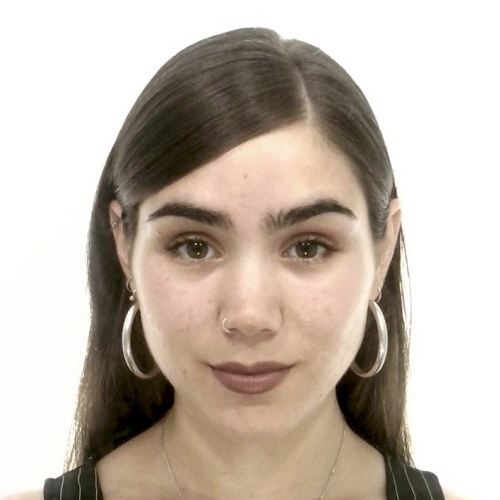
Lucia Alonso Santos
Lucia Alonso Santos, born in Granada in 1998, studied cinematography at the Escuela Superior de Cine y Audiovisuales de Cataluña (ESCAC), where she graduated specializing in Direction of Photography. She develops her work in the field of photography, videoclips, non fiction and video essays, attracted by experimentation with film supports, digital and light.
Her video essay In Memoriam was selected in Filmadrid (2020) and distributed by MUBI. Her work deals with the relation between identity and space, embodied forcefully in Who witnessed the temples fall, her first feature film. Currently, she's pursuing a Master's in Filmmaking at Elías Querejeta Zine Eskola, while developing her next film, and working on the experimental piece Mis manos en tu pelo, pelo.
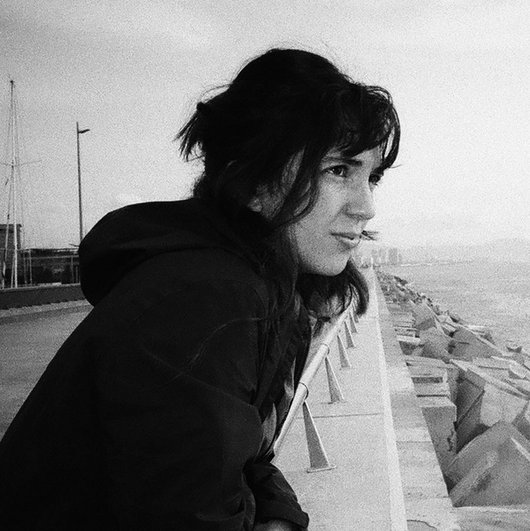
Alba Bresolí
Alba Bresolí (Muntanyola, 1995) has a Bachelor's degree in Communication and Filmmaking and a Master's in Creative Documentary from Pompeu Fabra University.
El día que volaron la montaña (2022), her short documentary, was nominated for the Gaudí Awards and screened at national and international film festivals such as IDFA, Documentamadrid, Sheffield DocFest, Malaga, D'A Film Festival, etc. El bon auguri is her fourth short film, which deals with the resistance of rural life. She combines her work as a filmmaker with artistic projects such as the video installation Illa de Carn as well as programming at film festivals such as DocsBarcelona, GoShort, Memorimage and Mostra VOC.
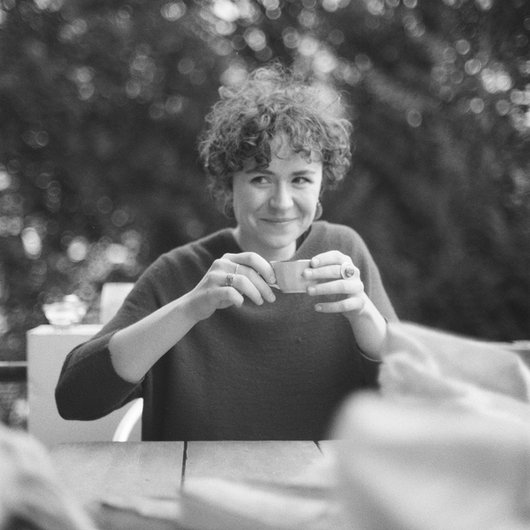
Juliana Brousse
Juliana Brousse is a young French director and photographer. She studied Literature and History before doing a Masters in Film Studies specialising in Documentary at the University of Paris VII, and then entering the Image department at the Fémis in 2018. She works with the Curry-Vavart collective's Argentique Laboratory, le Carré rouge, and regularly with Le Doc, another artists' collective in Paris.
Through her photographs and films, she is interested in the working gestures of boatmen, construction workers, cemetery workers and so on. Construction and deconstruction sites, as well as materials and their origins, are all part of her research. She is currently completing Les Amarrés, her first medium-length film produced by Unexpected Films.
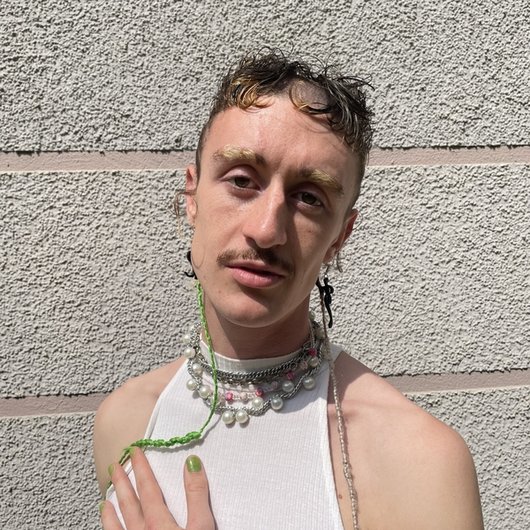
Dario Campo
Dario is a white, able-bodied and queer filmmaker based in Berlin.
They started out as an editor for german television which soon caught their interest in developing their own projects. Since 2021 they study documentary filmmaking at self-organized filmArche where they mostly direct and produce their own films. Their first short documentary Breaking the binary focusses on the lives of three young non-binaries on their gender identity journeys and premiered last year. Dario prefers to work in collective, non-hierarchical environments out of which Willst du mit mir sterben? emerged – a soon to be published thirty minutes intergenerational documentary about (co-)existing and dying within the queer community. With Planet Anthurium, they propose new forms of sexual representations and explore the world of queer smut movies.
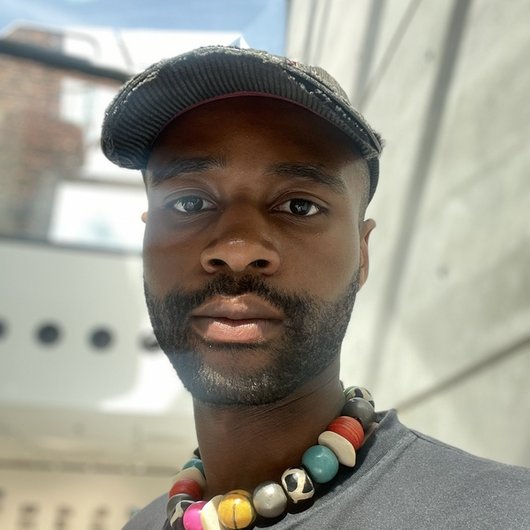
Karisma Ekeh
Karisma Ekeh is an artist born in Lagos, Nigeria, and based in Düsseldorf, Germany. Since 2020, he has been studying at the Art Academy Düsseldorf in the classes of Dominique Gonzalez-Foerster, Ellen Gallagher and Danica Dakic.
His short film, Negro Alter Ego: The Origin, was showcased at the Oberhausen International Short Film Festival in 2022.
Karisma's work often spans collaborative and interdisciplinary boundaries, incorporating elements from film, fashion, curatorial practices, performance, and poetry.
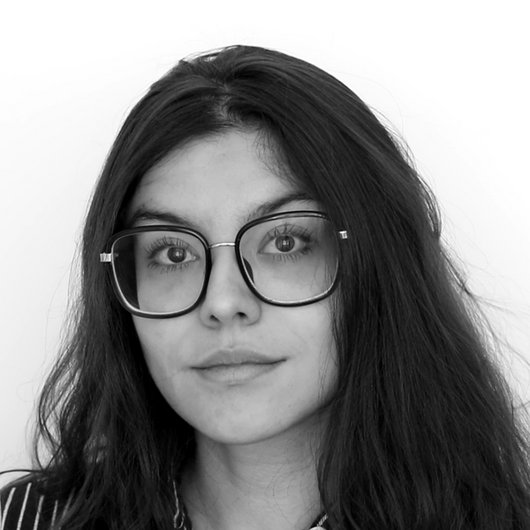
Occitane Lacurie
Occitane Lacurie is a PhD student at the École des Arts de la Sorbonne in Paris, a film journalist, as well as a video-essayist. Her academic work like her videographic practice are interested in media archaeology and the way hardware or software can be used to unveil invisible phenomena and untold chapters of the history of ideas.
As a film critique, she is a member of the editorial board of the French film journal Débordements and appears in Mediapart's cultural podcast, L'Esprit critique. Her articles are focused on the forgotten history of feminist French criticism and the way images could be considered as crystallised political discourses.
As a video essayist, her works have been shown in several international festivals such as Pesaro Film Festival (ReEdit competition award 2022), Cinéma du Réel (Parallel selection 2021), En Temps Réel (2024), Mariendbad Film Festival (Video Essay selection 2024). They explore the way in which the material history of media can be told by reusing the images produced by the audiovisual fabric of reality.
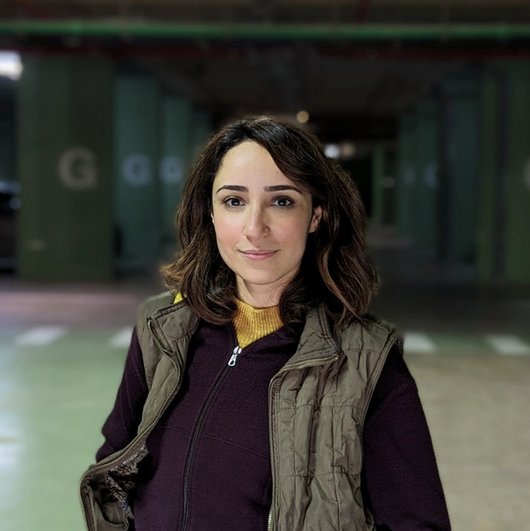
Amira Louadah
Amira Louadah is a multidisciplinary artist and designer. Having grown up in a multilingual and sometimes exclusionary environment in Algeria, she perceives languages – video, photo, colors, objects –as materials to communicate beyond words, through sensation.
Graduated from the École Nationale Supérieure de Création Industrielle (ENSCI–Les Ateliers, Paris), she applies her analytical and strategic design vision to her artistic work. She has been invited to present her projects by institutions such as the Sharjah Art Foundation, the London School of Economics, Pôle Pixel, and the Institut français d’Algérie. Her latest film, L’Arche, won the Renaud Victor Prize at Fid Marseille and has been selected in official competition at several international festivals, including the Clermont-Ferrand International Short Film Festival, RIDM, and the Camden Film Festival.
Through audiovisual, photographic, and performative projects, she questions and explores the renewal of the imagination associated with the city and the bodies inhabiting it, as well as forms of control, domination, and resistance of the body.
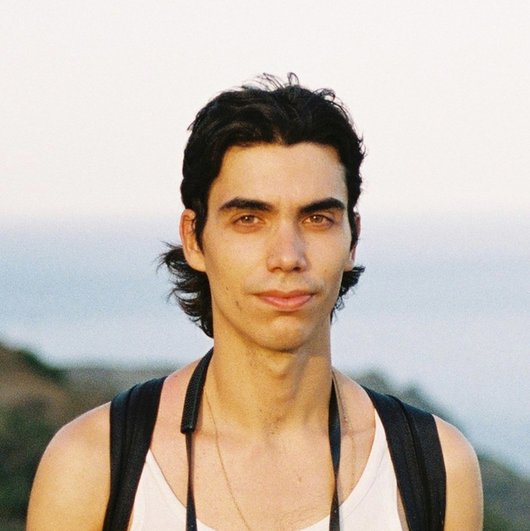
Martí Madaula Esquirol
Martí Madaula Esquirol (Sabadell, 1996) holds a degree in Fine Arts from the University of Barcelona, a Master of Visual Arts from the LUCA School of Arts of Ghent (Belgium) and a MFA in Film, Video, New Media, and Animation from the School of the Art Institute of Chicago. In 2019, he received the Extraordinary Prize of Fine Arts (University of Barcelona). In 2021, he was awarded a prestigious La Caixa Foundation fellowship to pursue his studies in the United States.
His first film, The Living Wardrobe, had its Premiere at Visions du Réel 2024, one of the most important documentary and non-fiction film festivals. He has shown his work in solo exhibitions such as "L’Armari Vivent" (Prats Nogueras Blanchard, 2024), "Tough, Reliable and Almost Cuddly" (SITE 280 Gallery in Chicago, 2023), "To Recover the Bedsheets from Manchester" (Museum of Sabadell, 2021) or "Stronger than Air, Thinner than Ice" (Astronomical Observatory of UGent, 2019), among others. He has also taken part in several group shows.
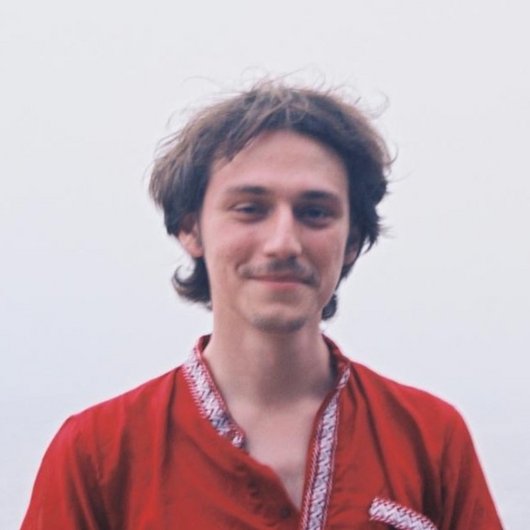
Xavier Montoriol
Xavier Montoriol graduated in Modern Languages and Literatures at Universitat de Barcelona (UB), and later studied a Master’s degree in Comparative Studies of Literature, Art and Thought at Universitat Pompeu Fabra (UPF) and in Film Curating at Elías Querejeta Zine Eskola (EQZE), where he wrote and directed his first short film, Cantarà l’alosa (2024). A second film, A cidade, is now in post-production.
He currently works as a translator and writes film criticism for different sites.
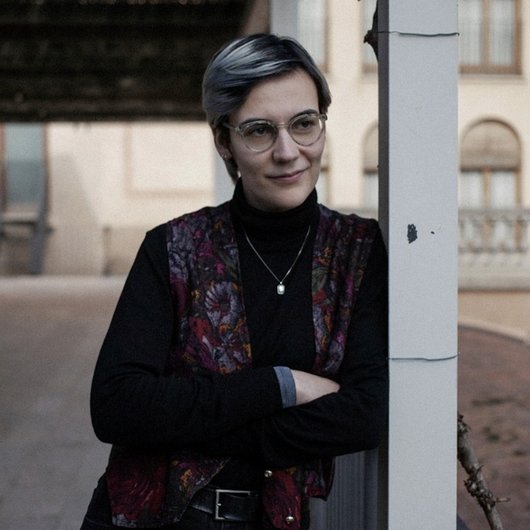
Anna Mundet Molas
Anna Mundet Molas is a predoctoral researcher and filmmaker from Barcelona, with a MA in Cinematography and Media Studies from Pompeu Fabra University.
Her works have been showcased at festivals like Academia Film Olomouc, Braga Science Film Fest, and Barcelona Film Fest. Her academic path includes a fellowship at the University of Texas and participation in the Pelion Summer Lab at the University of Thessaly. She is the co-founder of Malniu Films, an artist-run, non-profit film cooperative and in 2023 she served as jury member for the NEST competition at the San Sebastian Film Festival.
Her artistic work explores the intersection of technology, cinema, and environmentalism, utilizing new media tools and experimental forms within the fields of speculative ecologies, environmental humanities, image theory and critical AI studies.
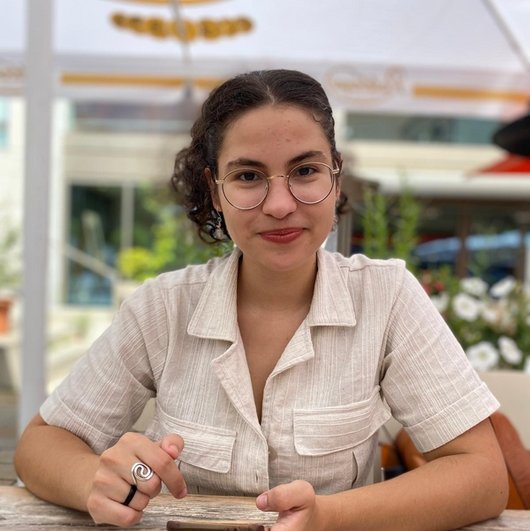
Janaína de Oliveira Gerdemann
Janaína de Oliveira Gerdemann grew up in Recife Brazil and Heidelberg, Germany. She studied Motion Pictures at Hochschule Darmstadt and earned her Bachelor's degree. In 2017 she worked on the first documentary Damroze Akwe: Love and Resistance. Since 2021, she has been a member of the Ore Arts Collective, working as a filmmaker.
She creates films about the experiences and stories of the Black community. Her films aim to make people think and address important social issues. Janaína values showcasing the resilience and creativity within her community.
Besides her work with Ore Arts, she is involved in other artistic projects. Janaína is dedicated to making the film industry more inclusive and wants to help shape a better future through her work.
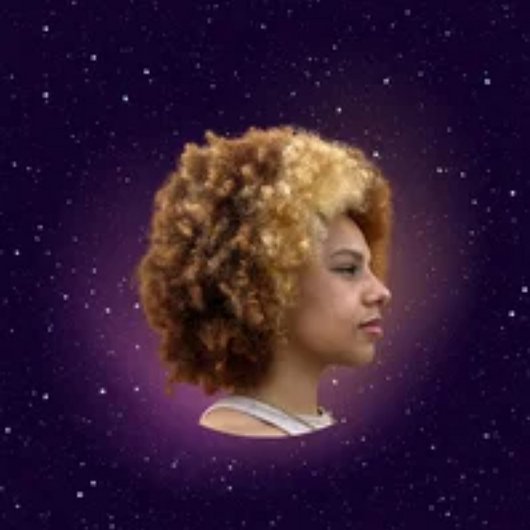
Samantha Rodríguez González
Sam (she / they) is a berlin-based Afrocuban multidisciplinary artist and filmmaker whose work explores retro futurism, Afrofuturism, and Caribbean life with humor and surrealism. Sam's practice includes acting, producing, writing, filming, editing, painting, sculpting, and dancing. Having lived in Cuba, Spain, Portugal, Ecuador, and Germany, Sam brings a rich cultural perspective and fluency in multiple languages to their work. They prioritize inclusive representation and advocate for decolonized storytelling.
Currently, Sam is pursuing multiple degrees in Latin American Studies along with Film and Theater Sciences. KHRONIC SATURN SYNDROME, a short film by sam is their most recent project made in Germany, 2024.
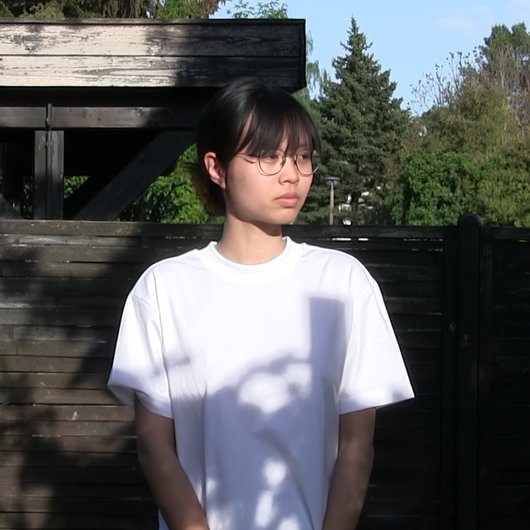
Phuong Thao
Phuong Thao is an artist and filmmaker from Hanoi. She works in France, Germany and Vietnam. Her works follow the trails of people, stories, and objects through cultural and political borders, hitherto forming a series of portraits situating each one in the current of history.
She’s experimented with non-fiction in many forms: documentaries, fiction, installation and literature. Her deep interest in the human experience and its conflicts with the socio-political questions of the time has led her towards her most important collaborators: non-actors – or, in other words, complete strangers. She allows herself and her collaborators to be open, sensitive to the endless fluctuations and patterns of meaning around them. They move forward looking out for signs, for idiosyncrasies.
Phuong Thao is experimenting on more intentioned, written, choreographed forms for her future projects.
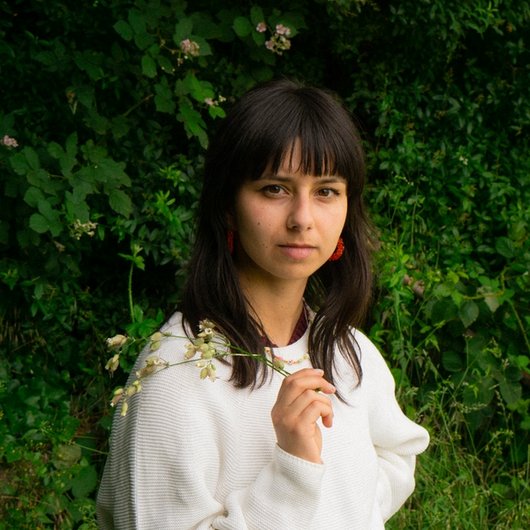
Adélie Vertès
Adélie Vertès naît « bébé éprouvette » en Australie de parents français et grandit dans le sud-ouest de la France. Diplômée d'une licence d'études cinématographiques à l'Université Paris 7, elle réalise en 2021 son premier court métrage Bourrache, inspiré d'une rencontre avec une herboriste, en autoproduction avec Fumigènes Films. Elle est actuellement membre du groupe de travail Narraction, un programme de la Haute école des arts du Rhin à Strasbourg.
Le travail de Vertès nous invite à reconsidérer notre rapport politique au territoire, aux paysages de l'enfance et aux dimensions géographiques et sociales qui nous définissent, en particulier le clivage ville-campagne. Elle travaille également sur les thématiques liées au soin et aux techniques traditionnelles de guérison (herboristerie, magnétisme) dans ses écrits, films et photographies, pour lesquels elle cueille notamment des plantes médicinales en zone périurbaine. Elle œuvre actuellement à la réalisation d’un documentaire qui suit les mouvements de résistance contre la construction de l'autoroute A69, reliant les villes de Toulouse et de Castres.
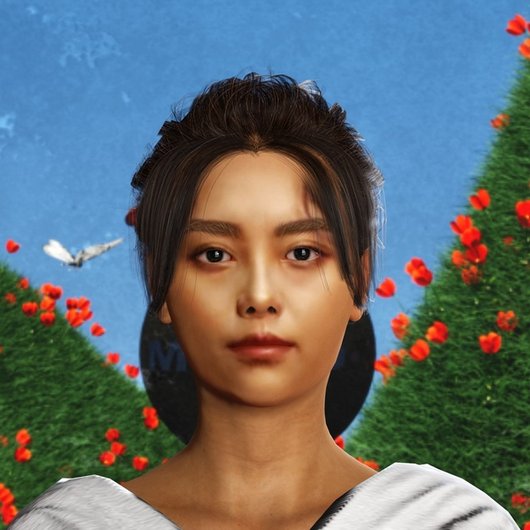
Zhou Yinglin
Zhou Yinglin is a video and new media artist. She holds MFA of University of theArts Berlin and is a PhD candidate at the University of the Arts Linz.
Zhou explores identity, digital space, and cultural equality, addressing issues like identity recognition, displacement, and post-colonial gaps. Her works, with satirical wit and political insight, offer a futuristic view on cultural equality, reflecting extensive analysis.
Her works have been showed in major art institutions and exhibitions globally, including Ars Electronica Center Linz, Art Basel Hong Kong's Film Program.
